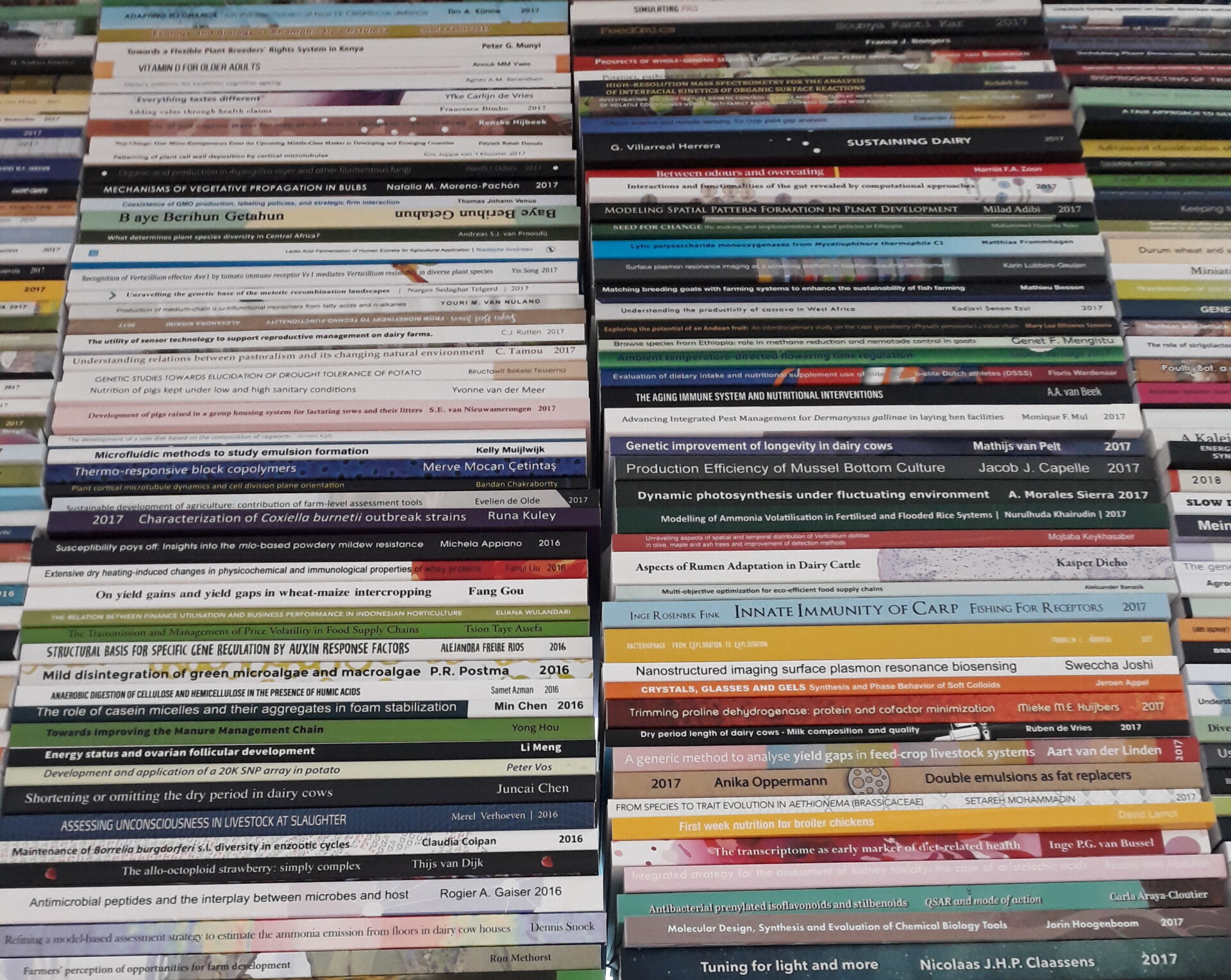More than 250 PhD students receive their PhDs at WUR every year. It is impossible to describe and summarize all these theses. In the column ‘PhD theses in a nutshell’ the selection of our science editors is briefly presented.
River plastic
Flooding is doubling the amount of plastic transported by rivers worldwide. Even moderate flooding, the kind that happens once a decade, can increase the transport of plastic by a factor of ten. Caspar Roebroek reaches these conclusions in his PhD thesis on the transport of plastic by rivers. The day-to-day weather has little effect on that transport, but extreme weather has a big impact. Roebroek says this needs to be taken into account when coming up with solutions for tackling plastic pollution. He also says preventing plastic waste in the first place is even better, of course.
The Role of Hydrometeorology in River Plastic Pollution.
Caspar Roebroek. Supervisors Ryan Teuling and Martine van der Ploeg
Meningitis
Streptococcus suis is a bacterium that can cause severe disease in pigs. The pathogen can also be transmitted to humans, where it causes meningitis. The Chinese researcher Tiantong Zhao studied how the bacterium manages this and how it reaches the brain. To do this, the bacterium ‘hijacks’ plasminogen in the blood. A protein called enolase on the surface of the bacterium converts plasminogen into plasmin. The plasmin helps the bacterium cross the blood-brain barrier and carry out its destructive work. A smart trick by the bacterium.
Crossing Barriers: how Streptococcus suis Hijacks the Plasminogen-plasmin Proteolytic System to Invade the Brain.
Tiantong Zhao. Supervisor Jerry Wells
Storing electricity
Being able to temporarily store sustainable electricity is becoming increasingly important. One possibility is to use methane: carbon dioxide is converted into methane in a biobattery with the aid of bacteria. Micaela Brandão Lavender, from Portugal, studied the electrical aspects of such a system. How can you design the system so that a lot of methane is formed, minimizing the loss of energy? Her results show this is no easy task. The demands of storage capacity, efficiency and speed pull in different directions. It seems that nature cannot easily be moulded to suit human purposes.
Power-to-methane in a Bioelectrochemical System.
Micaela Brandão Lavender. Supervisor Annemiek ter Heijne



